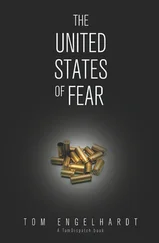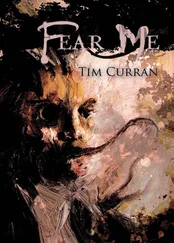“Now see, nigger? I let you keep your balls. You like to talk so much, why don’t you say thank you? My Mama is sure gonna miss that thing.” Drawing back his boot, Tull kicked the writhing man as hard as he could in the side, driving it into the slave’s lower ribs, and they all heard the snapping sound.
“Now put him on his stomach and get him tied,” Tull said. “Throw him in the wagon when you got him right. I didn’t finish my lunch.”
The group arrived back at Fontainebleau late in the afternoon. As they approached the mansion house, Tull told one of the field hands watching the procession to run and get Master real quick. They pulled over by the stable area. Five minutes later, Master Arthur came sauntering down the path to where they were. He was well turned out — immaculate white breeches, a green velvet waistcoat, and a lace scarf at the neck, setting off his puffy pink face. Tull watched him with disgust.
“Yes,” Master Arthur said. “I see you have brought me something.” The slightly brusque heartiness masking a degree of impatience, or perhaps nervousness.
“Throw back that canvas, Olds,” Tull said. The man did so, revealing the slave, with his rags down around his thighs, his midsection a mess of clotted blood. His head was near the foot of the wagon, between Tull and Master Arthur. One eye opened, slowly, in the Master’s direction, unseeing, clouded. The Master gave a reflexive wince, an intake of breath, a slight frown.
“There’s your man,” Tull said.
Master Arthur regarded Tull now, with some mixture of shrewdness and fear. “Well,” he said, “he’s hardly any good to me in this condition, is he?”
The words “is he?” angered Tull — the easy superiority, the indifference to the suffering staring him blindly in the face. And trying to get out of paying, clearly.
“You said dead or alive.”
“Well, he’s not much of either,” the Master said. A faint trace of a smile around the edges of the eyes. “Is he?”
Tull drew his pistol and with no further word forced the barrel into the runaway’s mouth against the rag that was still there, pulled the trigger once and sent blood, brains, and the top of the runaway’s skull spattering all over the Master’s breeches and waistcoat. The saddle rag, still wedged in the slave’s mouth, caught fire.
“Dear Christ,” Master Arthur said. Steadying himself on the side of the cart, he bent over, retching.
Tull watched him for a moment. “Now,” he said. “Are you going to pay me my money?”
This was a language everyone understood, and he was generally recognized as effective, ruthless, and fair. He was the hire of choice for the most challenging jobs. The masters were themselves afraid of him, but they knew where they stood at least. And beyond that, he expressed something inside them which they expended their resources in keeping disguised, even from themselves, and yet which was the foundation of their world. For his part, Tull took no pains to disguise his contempt for the planters’ false aristocracy. He had no friends. He took pride in his work, he expected full and prompt payment, and otherwise he kept to himself. He was a professional.
He drew near the carriage entrance of The Tides now, and upon dismounting was received by a black gatekeeper, in livery. Gold epaulets, fancy stitching, dirty collar and knee stockings. Buckled shoes. A type he hated; it made Tull sick. This footman had a fringe of white hair around his bald scalp, bulging eyes, and a goiter under his left ear.
Without making eye contact, the servant took the reins and said, “Master James Stephens will see you in the parlor.”
“Really?” Tull said. A smile slowly disfigured his face, like blood seeping through a bandage.
“Yes, sah.” No eye contact.
“Take good care of my horse, now, Sambo.” Fixing him with his stare, willing the old man to look at him.
“Yes, sah.” Still the unconcern, tying the reins around a post. “I’m called Atticus, sah.”
“Tell your mama I said hello, Atticus,” Tull said, starting toward the door.
“Mama in a better place,” the servant said, under his breath, as Tull walked away.
An older woman servant greeted him at the door and walked him down a short hallway to the main foyer, and through that to the parlor. The plaster had fallen away from a part of one wall in the foyer, and there were gray smudge trails above the wall-mounted oil lamps, unlit, now, in the daylight. The parlor itself was large and bright, with windows stretching from the floor up to the picture-frame molding above. The sunlight had faded the upholstery on the furniture — velveteen settees, French chairs. Fissures in the plaster, here and there. The usual oil portraits on the walls; above the fireplace, a giant, thick, ornate gilt frame surrounded a large mirror, darkened by decades of fugitive smoke. Several large chips of gilt had gone missing from the mirror’s frame and left irregular white patches among the baroque curlicues. A huge, faded Oriental carpet covered much of the floor.
The Master would make him wait; that was part of the transaction, always. Tull kept his hat on; it was made from a hide of some sort, of a peculiar dark brown color and texture. He remained standing. When the man finally entered — white hair, and a full head shorter than Tull, wearing a red cloth jacket — he dispensed with any greeting, saying, simply, “Please sit down,” and indicating a blue brocade chair. He regarded Tull’s hat, pointedly, but he did not ask him to remove it.
“You’ve read the note I sent,” Stephens said, once they were seated.
Tull nodded.
“You must have questions you need to ask.”
The man’s hair, mostly white and yellowed, was swept back somewhat theatrically from his forehead. His eyes were green and he had long eyelashes that Tull thought looked like a girl’s. Tull guessed that he had applied some rouge discreetly to his cheeks. He was skinny and slight but not muscular; a boy’s body, with a paunch behind the embroidered white vest. He smelled of rosewater.
“Why did he run off? Did he get a beating?”
“I never beat him. He lived comfortably and never lacked for anything.”
“This boy lived down in those quarters I passed?”
“No. He lived in a small house twenty yards off the kitchen, to the east.”
“He had his own house?”
“He lived there with his mother and one brother.”
“His mother is still there?”
“Yes.”
“Is there a father around?”
The master looked at Tull for two full seconds before saying, “The father is unknown.”
So, Tull thought. That was easy. Just to be sure, he smiled, nodded as if in accord, and said, “These nigger bitches can pick up extra weight anywhere, can’t they?” He watched Stephens’s face mottle with red, and then he knew for certain who the father was, and he saw that Stephens knew that he knew.
“Where do you think he went?” Tull asked. “Do you have any idea?”
An attractive slave girl in her teens entered the room carrying a tray with two glasses and a pitcher of lemonade. She stood in front of Stephens, seemingly unsure what to do. Tull watched Stephens avoid her eyes and say, “Thank you, Aurora.” The girl frowned slightly as he took one of the glasses. “You may put the tray down on the table after serving Mister Burton.” She approached Tull, who looked her directly in the eyes and gave her a big smile. She was very scared.
“You can just set the tray down right there,” Tull said. “Thanks, Aurora.” Her hands shook as she set the tray down and walked out of the room without a word.
“I am assuming that he has found his way to some Northern city.”
“That takes in a lot of territory, Mister James. Any hints about which one?”
Читать дальше










